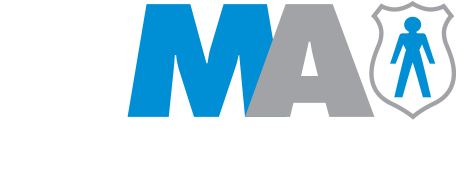September 2016 is also known as National Suicide Prevention Awareness Month which helps promote resources and awareness around the issues of suicide prevention, how you can help others and how to talk about suicide without increasing the risk of harm.
Suicidal thoughts can affect anyone regardless of age, gender or background. Suicide is the third leading cause of death among young people and is often the result of mental health conditions that effect people when they are most vulnerable. Suicidal thoughts and suicide occur too frequently but should not be considered common and can indicate more serious issues. In many cases the individuals, friends and families affected by suicide are left in dark, feeling shame or stigma that prevents talking openly about issues dealing with suicide.
- Know the Warning Signs and Risk of Suicide
- Preventing Suicide as a Family Member or Caregiver
- Being Prepared for a Crisis
Crisis and Information Resources
- I'm in crisis or am experiencing difficult or suicidal thoughts: National Suicide Hotline 1-800-273 TALK (8255)
- I'm looking for more information, referrals or support: NAMI HelpLine 800-950-NAMI (6264)
If you or someone you know is in an emergency, call The National Suicide Prevention Lifeline at 1-800-273-TALK (8255) or call 911 immediately.
If you or someone you know is in an emergency, call The National Suicide Prevention Lifeline at 1-800-273-TALK (8255) or call 911 immediately. - See more at: http://www.nami.org/suicide#sthash.GE2GI37c.dpuf
World Suicide Prevention Day
On September 10, 2016, we observe World Suicide Prevention Day to reach out to those affected by suicide, raise awareness and connect individuals with suicidal ideation to treatment services. It is also important to ensure that individuals, friends and families have access to the resources they need to address suicide prevention.
What else can I do?
We believe that these issues are important to address year round. Highlighting these issues during Suicide Prevention Awareness Month and World Suicide Prevention Day provides a time for people to come together and display the passion and strength of those working to improve the lives of the millions of Americans that can benefit from honest discussions about mental health conditions and suicide. In fighting for those living with mental illness there is still much more that needs to be done and more ways to get involved.
If you or someone you know may need a mental health assessment, anonymous online tools are available. Learn more and help yourself or someone you care about.
Risk Factors for Suicide
Research has found that about 90% of individuals who die by suicide experience mental illness. A number of other things may put a person at risk of suicide, including:
- A family history of suicide.
- Substance abuse. Drugs and alcohol can result in mental highs and lows that exacerbate suicidal thoughts.
- Intoxication. More than one in three people who die from suicide are found to be currently under the influence.
- Access to firearms.
- A serious or chronic medical illness.
- Gender. Although more women than men attempt suicide, men are four times more likely to die by suicide.
- A history of trauma or abuse.
- Prolonged stress.
- Isolation.
- Age. People under age 24 or above age 65 are at a higher risk for suicide.
- A recent tragedy or loss.
- Agitation and sleep deprivation.
The MMA hosted Remembering TJ- here are is some information from Mr. and Mrs Sefcik, who shared their experience of losing their son TJ to suicide.
Recommended Resources
Erika's Lighthouse is a grassroots, educational organization dedicated to raising awareness of adolescent depression and mental health for young people.
NAMI: National Alliance on Mental Illness
NAMI provides a wealth of information and resources for being battling mental health disorders and for their families.
Bergen County Dept. of Health Services Div. of Mental Health
The Mental Health Division aims to raise public awareness that mental illness is a disease, not a choice. The website provides a wealth of information and resources.
Bring Change 2 Mind’s mission is to end the stigma and discrimination surrounding mental illness through widely distributed Public Education Materials based on the latest scientific insights and measured for effectiveness.
American Foundation for Suicide Prevention (AFSP)
The American Foundation for Suicide Prevention (AFSP) is the leading national not-for-profit organization exclusively dedicated to understanding and preventing suicide through research, education and advocacy, and to reaching out to people with mental disorders and those impacted by suicide.
Depression and BiPolar Support Alliance
DBSA provides help, hope, support and education to help improve the lives of people dealing with mood disorders.
Society for the Prevention of Teen Suicide (SPTS)
The mission of the Society for the Prevention of Teen Suicide is to reduce the number of youth suicides and attempted suicides by encouraging overall public awareness through the development and promotion of educational training programs for teens, parents and educators. Look for the “Not My Kid” video on their website.
Books
Eight Stories Up
An Adolescent Chooses Hope Over Suicide
Monochrome Days
A firsthand account of one teenager’s experience with depression
Mind Race
A first hand account of one teen’s experience with Bipolar
Will’s Choice
Gail Griffith
“A Suicidal Teen, a desperate mother, and a chronicle of recovery.
An Unchanged Mind
John McKinnon, MD
Cracked, Not Broken
Kevin Hines
An Unquiet Mind
Kay Redfield Jamison
NightFalls Fast
Kay Redfield Jamison
Angel and the Dragon
Jonathan Aurthur
When Nothing Matters Anymore: A Survival Guide for Depressed Teens
Bev Cobain R.N. C.
Perfect Chaos: A Daughter's Journey to Survive Bipolar, a Mother's Struggle to Save Her
Linea & Cinda Johnson
A Mother's Story
Gloria Vanderbilt
My Son, My Son
Iris Bolton
His Bright Light
Danielle Steele


